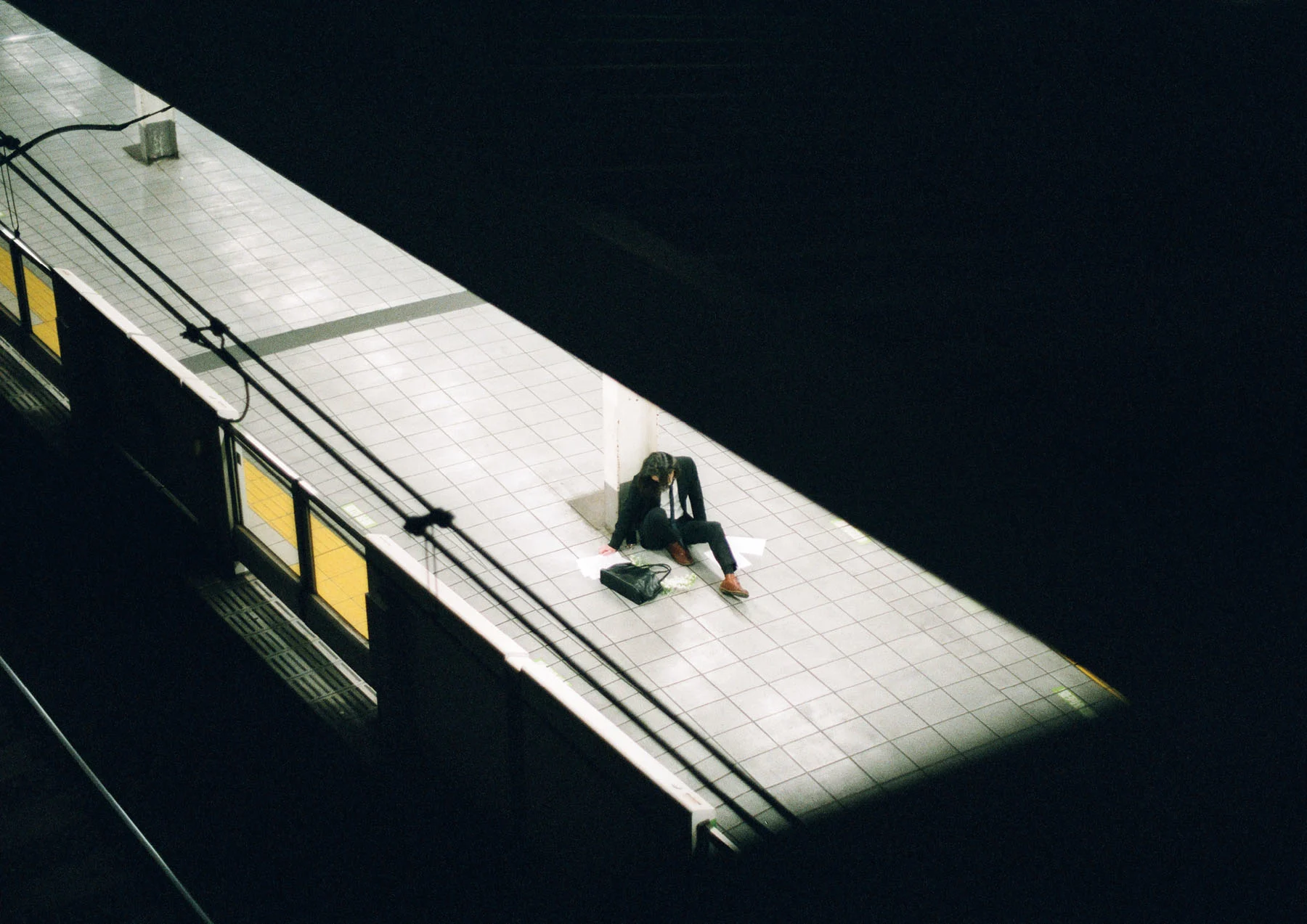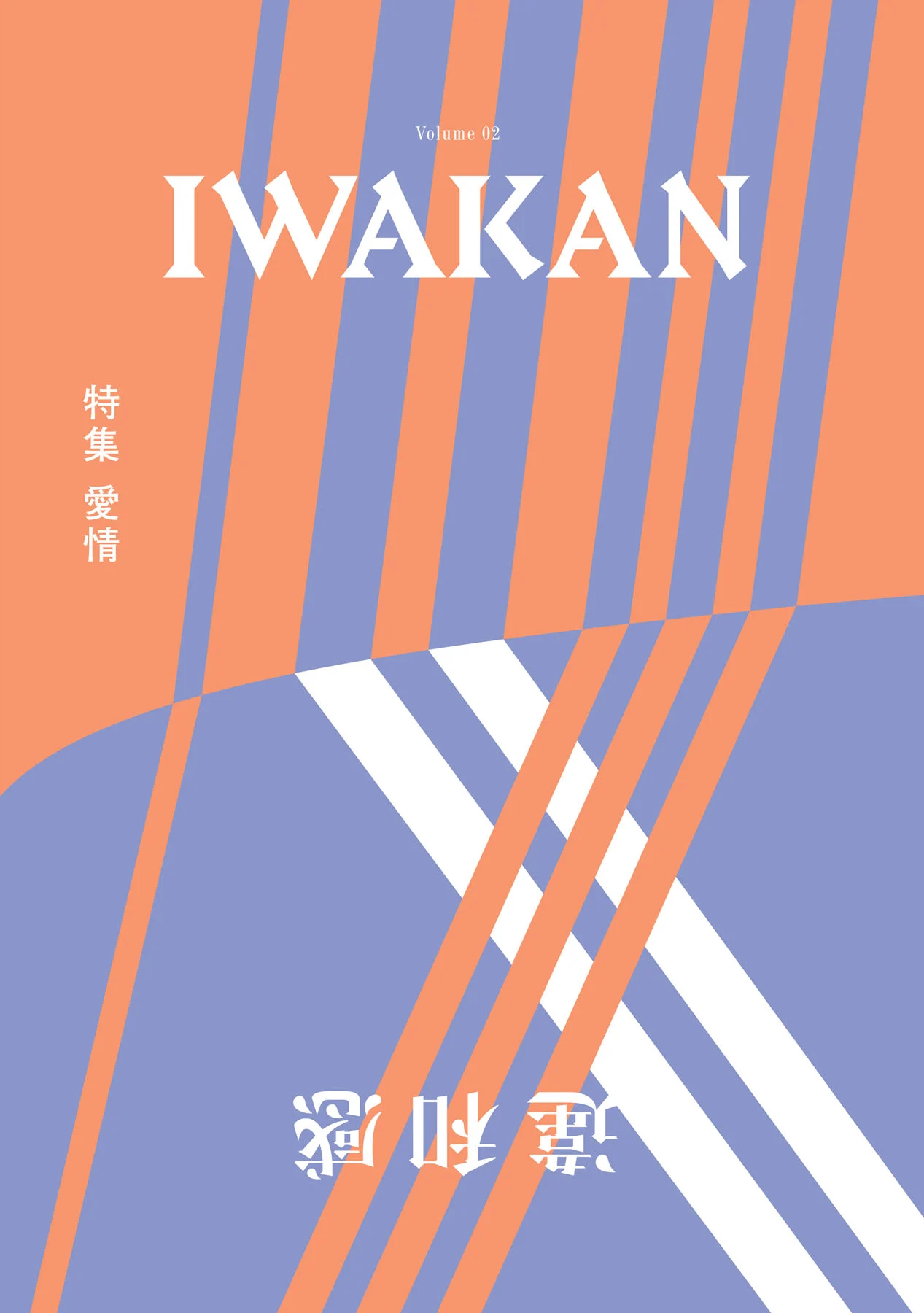

When Japan’s only mainstream magazine on gay culture closed its doors, this Tokyo-based print publication was borne out of a need to platform local LGBTQIA+ voices. Now in its sixth issue, the beautifully designed Iwakan—entirely centered around queer voices and stories—“makes the content we want to see.” Jyni Ong learns how it has cemented itself in the national media landscape, as it looks to question and remove the discomfort felt in society around issues of gender, sexuality and binaries.
Iwakan: a Japanese word with no exact English translation, but roughly, it means a sense of discomfort. It’s a word mostly heard with negative connotations in Japanese society, but uttered amongst queer communities when discussing broad histories with gender; specifically, for example, in the case of a pre-Covid gender movie club which allowed Tokyoites to express moments of discomfort towards the norm. Iwakan was “like a trigger to start questioning everything around you and become more like yourself,” co-founder Andromeda explains.



Named in honor of this mutual experience, Iwakan is the title of the Japanese print publication exploring discomfort within the intersections of gender, sexuality and binaries. Reclaiming the term as a celebration of queer identity, the magazine, now in its sixth issue, platforms Japanese LGBTQIA+ voices.
When Samson, a monthly magazine spotlighting gay culture, unexpectedly closed its doors in 2020, Japan’s queer communities were left bereft with little representation. In response, co-founder Kotetsu Nakazato (they/them) posted a callout to make a zine about Japanese queer culture, banding together Andromeda (she/they/him), Jeremy Benkemoun (he/him) and Yuri Abo (she/her) to embark on the project that would become Iwakan.
Together, they wanted to create something new, something combatting the “print is dead” notion while being inclusive to people of all genders. A magazine not just for LGBTQIA+ people, and sensitive to universal discussions that anyone can appreciate. The first issue, themed on binary, printed an initial run of 500 copies and two days later, it was sold out. “So we started thinking about it as a long term project,” remembers Andromeda, “and now it’s been three years. Our goal was to feature people that no one else would think of interviewing.”
Six issues later and Iwakan’s themes have respectively explored Love, Politics, Diversity, (un)Natural and most recently, Masculinity. In just a few short years, it has established itself in the Japanese media canon as the voice of local queer culture.

Its pieces range from illustrative commissions and artist profiles to think pieces and personal documentaries. A highlight for Andromeda dates back to the Love issue; an interview with four divorced mothers discussing their feelings on love as newly single women. “In Japan, marriage is seen as the ultimate goal for women. So how do you understand love after society claims it has ended for you,” they explain. Interestingly, the interviewees are the four editors’ mothers. “It’s not a story that would usually be picked up in a magazine,” they add on the highly personal angle.

The challenge is to get peoople who aren’t interested in gender to feel like the topic relates to them.
The latest issue on Masculinity—“because why aren’t cis men reading our magazine? The challenge being to get peoople who aren’t interested in gender to feel like the topic relates to them”—is the magazine’s first bilingual edition. Published in both Hiragana and English, it features a myriad of culturally-rich content.
From Nelson Hor’s comic titled “The Unspoken Tenderness,” exploring the role of the father within masculinity, to a directory of anonymous confessions from men revealing the social pressures society places on them in the guise of masculinity. Elsewhere, Koki Yamada and his partner Ayaka Yamada delve into the implications of male genital prosthetics and whether they can serve as a queer tool that transcends the boundaries of the body. While Noemi Minami offers a first-personal opinion piece on how China’s one-child policy has exacerbated patriarchal values, citing film and social media trends to inform her perspective.



The editors draw on their diverse backgrounds in photography, advertising and creative direction to craft a unique look and feel for each issue. Fun and quirky complementarity clash with elegance and the understated to build a specific aesthetic intended from the magazine’s beginnings. “Historically, a lot of gay magazines in Japan have a muscly man on the cover,” says Andromeda. “It’s a ‘the best sex of your life’ kind of thing, and we wanted the magazine to grow beyond that specific niche.”
In response, the Iwakan founders wanted the aesthetic to reflect how gender should be a topic of interest for everyone. To appeal to all demographics, the visual identity is abstract and accessible to all. It’s designed to be plucked off the shelf by anyone or laid on any coffee table. In a visual-literate society such as Tokyo, the editors knew the right aesthetic would be integral. In this way, the paired back visuals act as a vehicle for the radical content to shine through. “We need to trick people in a way,” laughs Andromeda, “no one would read us if we looked too indie so we made the covers abstract.”

The editors’ dream would be to interview queer icon and prominent activist Akihiro Miwa; one of few vocal public figures who has no qualms criticizing the Japanese conservative government, a hard-earned right which comes hand in hand with their legend status.
“We’ve interviewed a lot of people who were already talking about pressing gender issues 40 years ago,” says Andromeda. “Sometimes we think gender is a straight line but it’s actually cyclical. Fifty years ago these discussions were happening and progressing, but due to economic downturn, we no longer had the freedom to think about gender. It all became about fixing the economy and getting into your roles. Then time passed and we started thinking about it again. It’s about understanding how our society has changed but also how it hasn’t. How we can avoid repeating the same mistakes.”

